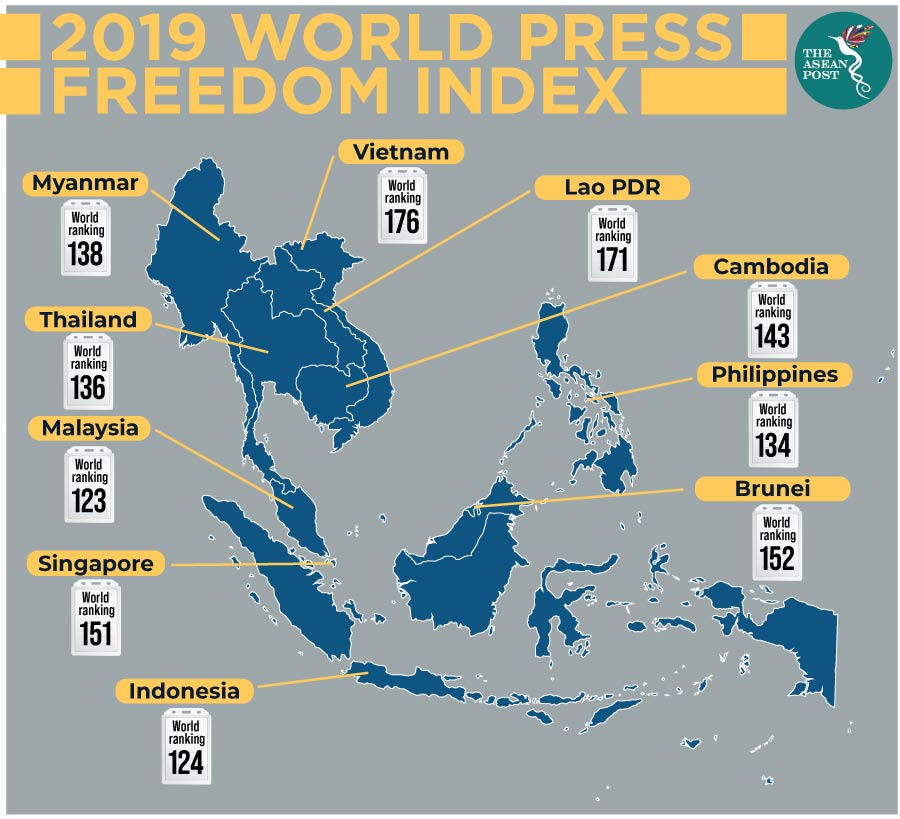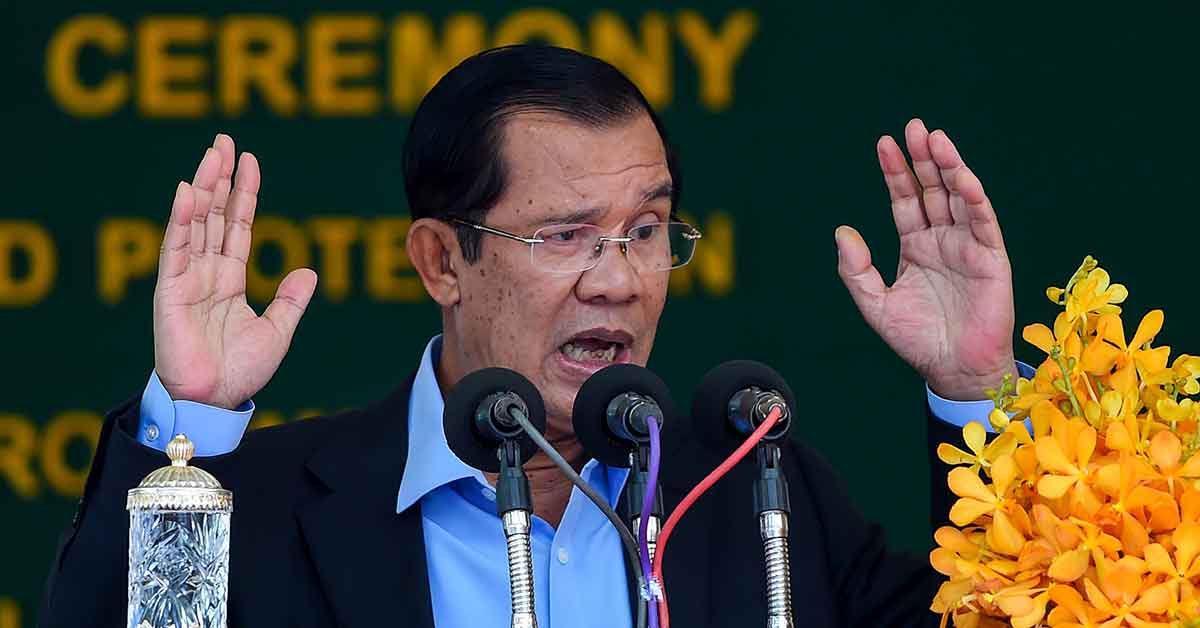Last week, in a letter to the Cambodian Editor Forum, Cambodian Prime Minister Hun Sen wrote a statement which seems to counter his alleged actions in the lead up to the country’s controversial July 2018 general election: “News media should dare to speak the truth.”
Hun Sen, however, has been accused of not only jailing his opponents – making the July election a supposed farce – but in May 2018, his administration had also purportedly clamped down on media freedom.
In that month a report by Freedom House claimed “the State has steadily purged critical voices from the information landscape ahead of national elections in July.” This was following the purchase of the Phnom Penh Post by a Malaysian investor, Sivakumar S Ganapathy, with alleged links to Hun Sen.
Almost immediately after this transfer of control, the Phnom Penh Post’s editor in chief, Kay Kimsong was fired for publishing an article on the new owner and his connection to the Cambodian government. The article, which has since been removed from the paper’s website, highlighted Ganapathy’s role as managing director of the public relations firm ASIA PR, whose past projects included “Hun Sen’s entry into the Government seat.”
“In the days following Kay Kimsong’s exit, several senior staff members either resigned in protest or were fired for refusing to take down the article in question. More than 20 current and former staffers signed a statement expressing their ‘disgust’ at the new management’s decision, which they felt was ‘made in contradiction to the values of a free press that our hardworking staff have upheld since 1992.”, Freedom House wrote.
A report released in February 2018 by the Cambodian Center for Independent Media (CCIM) also seemed to concur that there had been a clampdown on media freedom during the period when it found that nearly 85 percent of journalists surveyed considered the country’s media climate to have deteriorated. This was in contrast to the optimism felt by many in earlier surveys.

A number of radio stations were shuttered in 2017, knocking the United States’ (US) Radio Free Asia (RFA) and Voice of America (VOA) as well as local media outlet, VOD off the air. That year, two journalists for The Cambodia Daily, Aun Pheap and Zsombor Peter, faced court prosecution for incitement after reporting on local elections. Their trial has been scheduled for 25 December, though they both currently live abroad.
Two RFA journalists, Yeang Sothearin and Uon Chhin, were also arrested for espionage in 2017. They remain on bail, while the verdict for their case has been repeatedly delayed. Reporters Without Borders has also reported Cambodia’s press freedom in recent years as steadily dropping. While it was ranked 132nd worldwide in 2017, it now stands at 143rd this year, out of 180 ranked nations.
Fake news
In all fairness, Hun Sen seemed to be writing more on fake news as opposed to anything else. According to news reports, the full sentence read something a little more like this: “News media should dare to speak the truth” – especially against the “fake news” spread by “the outlawed rebel group and opportunists with foreigners behind them.”
Good media outlets should endeavour to “inform national and international audiences to know the real situation in Cambodia and prevent in time all their crafty tricks that attempt to overthrow the legitimate government and drag the country to fall into the fire of war again,” he said.
The statement is reminiscent of statements Hun Sen has made in the past against critics who have accused him of ruling Cambodia with an iron fist.
Fake news has been a term used by many leaders – especially in recent years - to deny news that may paint them in a negative light. Whether this is currently the case with Hun Sen cannot be confirmed but looking at the allegations hurled so far, it seems more than likely that many of his critics will view his statements in more of a suspicious light as opposed to a positive one.
Related articles:
